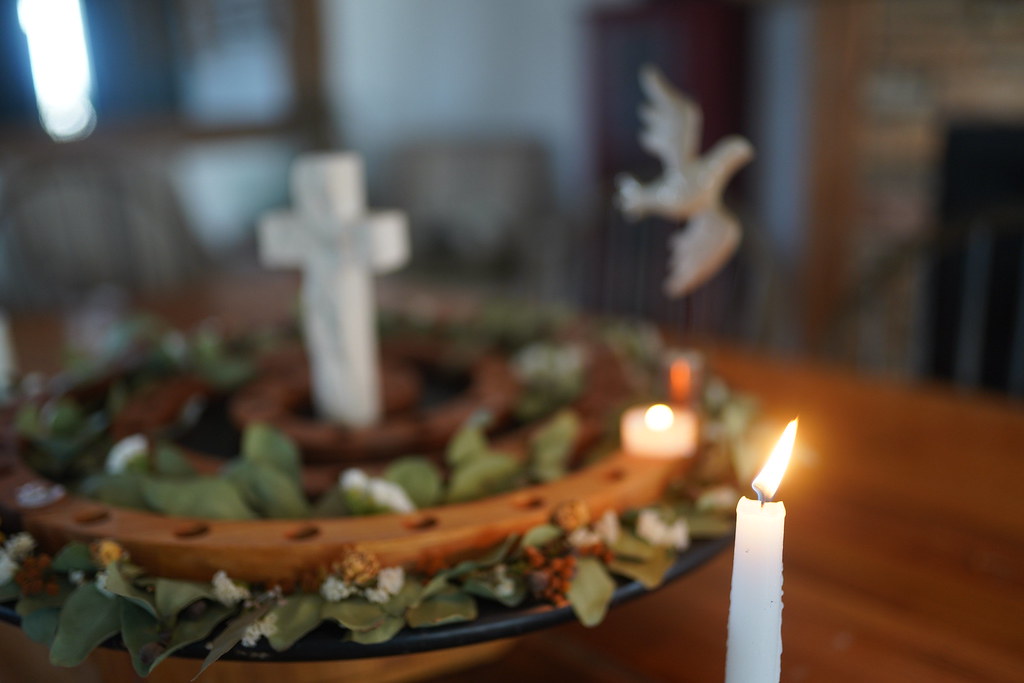You know how you once cracked jokes with them, did life with them?
How you made loud, laughing memories with them around tables, had grown real bonds of friendship for each other, and you actually thought you’d always be there for each other, have each other’s backs, be in each other’s corner always?
“When trust was deep,
the feeling of betrayal is deeper. ”
But it turns out? The joke’s kinda on you and they ended up seeing some situation entirely differently than you do, or have some different political point of view, or maybe they wanted things to go down differently, or think you should somehow be someone different, doing things very differently.
It’s okay to say you feel deeply betrayed.
It’s okay to honestly confess: Betrayal doesn’t just leave your heart broken, it leaves your soul jaded.
It’s okay to quietly say it: It’s harder to give forgiveness to a close friend, than to someone who never was a friend. Because: When trust was deep, the feeling of betrayal is deeper.
Your Jesus knows what it’s like to have your own Judas.












Jesus wasn’t betrayed just by some Tom, Dick or Harry down the street, Jesus was betrayed by one of his very closest friends – who kissed him warm on the cheek and then turned coat on Him, leaving him out in the cold to be crucified alone.
It was on Holy Week Thursday, Maundy Thursday, maundatam Thursday, that the betrayed Jesus gave His people all a new mandate, that command of the Last Supper:
“As I have loved you, so you must love one another.
A new command I give you: Love one another.
By this everyone will know that you are my disciples, if you love one another.” (John 13:34–35)
Turns out: You only get to be known as a disciple, if you’re known for your love.
“If Jesus can dip from the same bowl as Judas, then, in Christ,
we can at least share the same table, the same space,
with anyone, with grace. “
It’s Jesus’ Maundy Thursday new mandate to love one another that gives every day, and every one of us hurting ones, and the whole world, new hope.
It’s possible: With some love, you can always take any closed door and make it into an open table.
It’s possible, with some love: Where there is a relational break, instead of breaking fellowship — we could make it our personal mandate to always ask to break bread.
And if there’s someone we wouldn’t want at our table, what if we dared to look at who Jesus wanted to sit beside at the Last Supper table? If Jesus can dip from the same bowl as Judas, then, in Christ, we can at least share the same table, the same space, with anyone, with grace.
That’s what happened on Maundy Thursday of Holy Week: “On the night Jesus was betrayed — He gave thanks.” (1 Cor. 11:23)
True, your life is full of all kinds of betrayals:
On the night when the prodigal sliced open your heart, on the night when your boss betrayed your trust and you lost your job, on the night when your person said words and slammed out the front door, when the toilet stopped flushing, and the dog gagged and puked all over the back mat, when even all your hopes and every day life seem to betray you, on the night when it looks like the dawn would never come again — and the people of Jesus can still give thanks.
“On the night when Jesus was betrayed — He gave thanks. If Jesus can give thanks in that — it’s possible to give brave thanks in anything.“
Because when Jesus had to fight through the dark, staring right into the most impossible situation of the Cross, abandoned by His circle of friends who betrayed Him — what does Jesus do? Out of a universe of supernatural options at the tip of His fingers — what does Jesus determine is the most revolutionary way?
On the night when Jesus was betrayed — He gave thanks.
If Jesus can give thanks in that — it’s possible to give brave thanks in anything.
If Jesus can give thanks in that kind of heartbreak — how can we not give thanks in ours?
If even betrayal didn’t keep Him from being grateful — why are we letting any of life betrayals keep us from being grateful — and being like Jesus?












With some love, you can always take any closed door
and make it into an open table.
I can see the faces of people I once cracked jokes with but now don’t — and my heart breaks a bit. Why does a heart soft enough to break, get so hard once it’s broken? Is it: All the hurt that can get in where a hearts breaks, starts to harden it.
And then, Jesus who’s been betrayed too, He comes. Jesus comes sits down beside you.
And He breaks this bit of soft bread, and we can feel it, how our broken hearts soften too. And then He reaches out with one hand, to hand the bread to Judas — and with the other hand, He hands the bread to us.
We are all the Judases who have betrayed Jesus too.
And what can we do but take the bread — and murmur our heartfelt thanks too.
Because this is no less true too: On the night Jesus was betrayed — we gave thanks.
“When we give thanks for God’s grace, even in our hard places —
we see we actually have more than enough of God’s grace, to pass on to others in theirs.
We gave thanks that He gave grace to the Judases like us. I could weep. And when we think how great our own sins are — how can not have great gratefulness and great grace for every other broken sinner?
When we know about how much grace we’ve been given to cover our own betrayals of Jesus — how can we not give others grace for theirs?
It’s Maundy Thursday — and the Mandate is to love every day, like Jesus loved us to death on His last day.
What turns things around in this old spinning world is the revolutionary power of thanks for God’s grace.
And when we give thanks for God’s grace, even in our hard places — we see we actually have more than enough of God’s grace to pass on to others in theirs.







